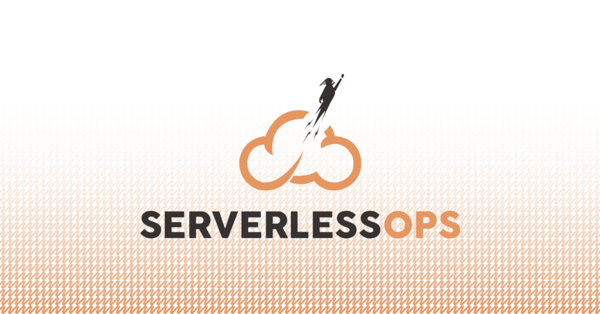
It is with sadness that I announce ServerlessOps is ceasing AWS cloud infrastructure and DevOps consulting services. But it is with joy that I announce next phase of my career and where its mission will continue.
The Road To Starting ServerlessOps
I started ServerlessOps a year and a half ago because, as many people who have started a business will say, the time was right. The combination of my technical interests, career interests, and the emergence of serverless provided enough alignment for me to take the plunge and start my own business.
My technical interests and career interests had been traveling in opposite directions for several years prior. I found little technology that truly interested me. I had spent a few years building cloud infrastructure platforms and eventually built one that while not perfect largely solved the problems that I had experienced earlier in my career. What I found afterwards was the prospect of building the same thing over and over, solving the same problems, but with different tools. As a result my interest in technology started to wane.
At the same time, I began learning the business side of companies, in particular startups. I was fortunate to work at two startups that made a point of educating its employees on business growth and development. I also unlearned a lot of large company thinking that wasn’t applicable to growing a company from the start. I became interested in what made some companies succeed while other similar companies failed. I became interested in the product side of Product Engineering, eventually marketing, and finally took an interest in sales. However I found it hard to find a startup that would let me apply the knowledge and ideas I had acquired so I could experiment and hone these ideas and skills.
(A lot of startups resemble a toddler wearing a suit and tie at a wedding. Sure, an adult should be dressed that way but a 2 year old just looks ridiculous in my humble opinion. Similarly, many startups act like large companies that have been scaled to a 10th, 100th, 1000h, etc. size.)
When I eventually started playing with AWS Lambda I was immediately hooked. Serverless was something different finally! Not only was the tech different and there were new problems to solve but it would change my role as an ops person too. I took the ideas I developed further and saw it also creating new opportunities for products and services.
A combination of excitement, inability to find a role that would provide an outlet for new skills, and seeing the potential to provide a product or service lead me to take the plunge of starting, operating, and growing the business that is ServerlessOps. This is an example what someone means when they say it was just the right time to start a business.
(It’s worth noting that the consulting business was the third company idea I had. The first idea I dropped because while it sounded good on paper I was eventually convinced there was no market for a product like it. It is however a feature in some of the products in the serverless space. The second idea was arrived at independently by others and there are products and an AWS service that reflect pieces of that idea. Had I found a willing and fitting partner I may have pivoted to pursue this one.)
The Serverless Market
Over the past few months I’ve talked about where I think the serverless market is in terms of maturity. Having good ties in the Boston startup community I figured I’d target local startups for my initial clients. What I found though was tepid enthusiasm. If a company was still interested in talking to me after I pitched serverless adoption to them, they asked me if I could deploy and run Kubernetes for them.
To understand this response I think going back ten or so years and looking at what was available for computing infrastructure provides some clues. At the time, VMware had really started taking off. The leap from physical server in the datacenter to virtual machine in the data center was a short leap. AWS and public cloud on the other hand was growing slowly and the leap was further. The tooling wasn’t yet quite there and organizations had to learn new engineering architecture patterns and processes. Many people at the time just didn’t really get public cloud either. One of my earliest conversations about AWS involved someone saying how an EC2 instance could suddenly disappear and unlike our VMware cluster, there was no one you could call to replace the VM.
I think the same dynamics are playing out again with serverless and Kubernetes. The leap from running VMs to containers on a container management platform isn’t that much of a leap (at a certain scale). It’s very easy to find developers who know how to stick a microservice in a container as well as find an operations person who can stand up a Kubernetes cluster and is eager to operate it to serve your tens or maybe hundreds of container instances.
But, at a certain scale Kubernetes starts to become hard. And then the advantages of Kubernetes over serverless start to diminish. This is why I’ve come to suspect that much of the serverless adoption will be in large organizations. I think it’s interesting that in this wave of cloud change it will probably be large companies leading the adoption. Many startups, especially VC backed, don’t have the visible problems that serverless solves but these large enterprises do.
This brings me back to the consulting market. The sort of companies interested in adopting serverless and willing to pay for consultants don’t readily go to one or two person companies. Your best path to survivability as a new specialty serverless consulting company or consultant is through subcontracting. Your customers aren’t the companies adopting serverless but the larger consulting players who serve those companies adopting serverless. This requires a good network within the consulting community.
By pivoting direction a few times and figuring out where the market is and who my customers are I have been able to get ServerlessOps to sustainability. And I could make a decent living doing serverless technical consulting work… But that’s not what I wanted to do. I wanted to start, operate, and grow a business. To grow ServerlessOps I think it would take at least another 2 years of where it is now and me doing serverless technical work as a member of development teams. That resulted in me asking what’s the most effective way to spend my time over that period?
Next Steps
I’m excited to be heading to one of those larger companies as a full-time employee. I’m heading to Liberty Mutual Insurance as a Solutions Architect specializing in scaling serverless adoption and DevOps practices.
By not being tied to a particular engineering team and operating across teams within the engineering organization I’m not delivering serverless services, I’m helping teams to adopt serverless and deliver serverless services. And because my job is to work across teams I get to reuse the same strategic customer thinking I employed at ServerlessOps. What you might term as “company politics” I’m excited to reframe as the customer journey. There’s marketing work to generate awareness and nurture interest. There’s sales work in getting teams to adopt serverless. (They’re not forced to!) And there’s customer success work to make sure engineers remain happy. And success is based on the bigger picture of achieving specific measurable objectives within the organization.
I’m also excited to share what I learn in this new role. I hope to make Liberty Mutual into an example of successful serverless adoption that other companies can learn from.
Final Words
Usually when someone in tech closes a business they provide some inspirational final message. But that's not really me. All I want to do is say thank you to all the people who helped me along the way to where I am.
This is also most likely the end of the Cold Start newsletter. I'm debating whether or not to keep it. If I do decide to bring it back it'll only be the links and it won't be back for another few weeks or months while I take a break.
Finally, I’ll just leave you with the nonsensical ending to a 60s British television show.
(Watch the whole episode if you want to watch something truly strange.)

 Tom McLaughlin
Tom McLaughlin
